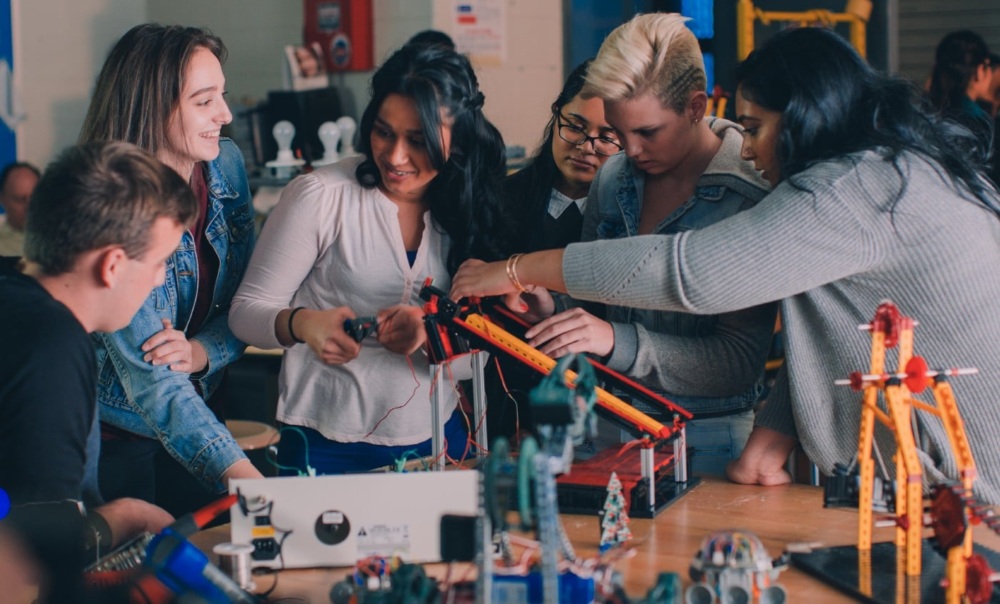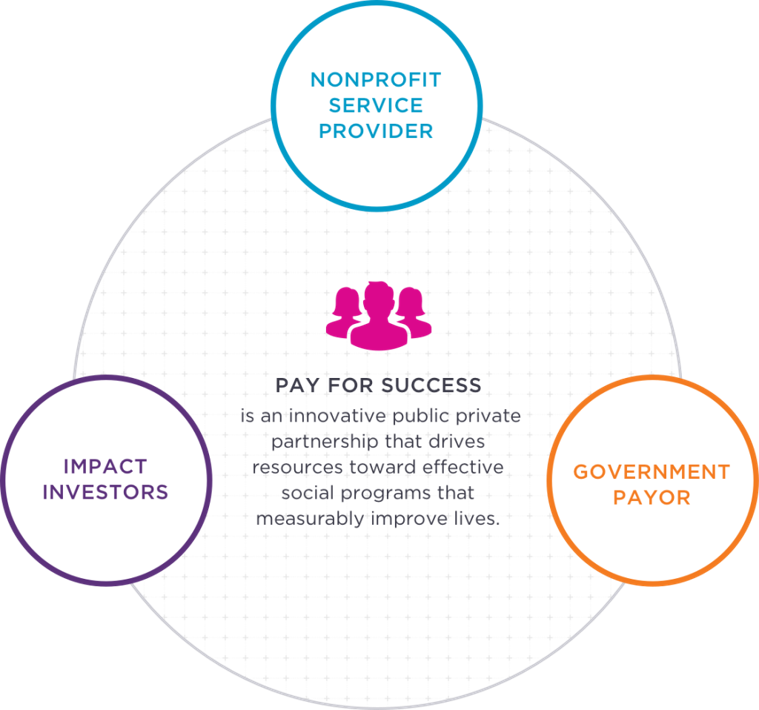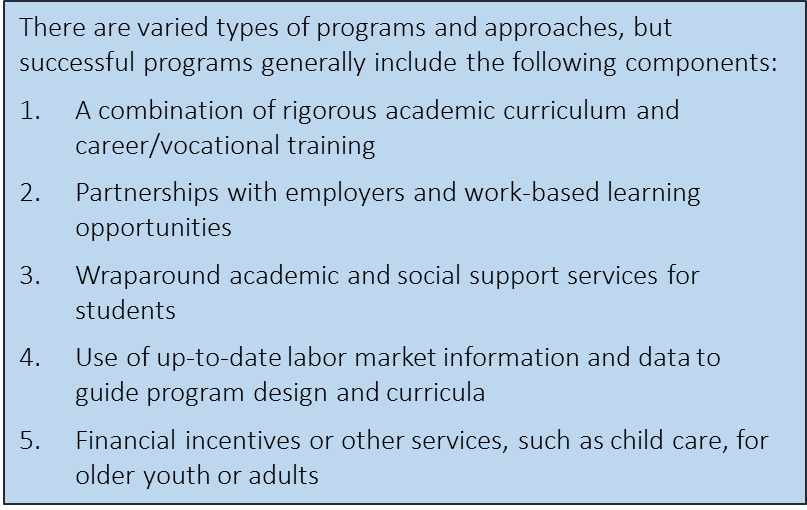

Public Sector Solutions
Announcing support from Google.org for our work exploring outcomes-based financing approaches to improve career outcomes for youth.
Imagine you are a high school junior in Dallas. A new program at your school invites you and 20 of your classmates to do a 3-week internship during the summer at a local corporation. You are nervous; no one in your family has ever attended college, much less worked for a big company, but you decide to do it. You spend three weeks designing and planning an upcoming publicity event, and on your last day, the event goes off smoothly. Even though you had never thought about this type of career or even school beyond high school, you start researching careers in marketing, public relations, and communications and return to school in the fall with a list of local colleges with programs in those areas. A relatively small upfront investment to scale an internship program can generate significant returns, impacting economic opportunities and outcomes for young people.
This is the type of powerful, outcomes-driven program that could be expanded by a Pay for Success project aiming to expand the most effective programs in training young people for the jobs of the future.

Social Finance’s work to improve economic opportunity for youth received a huge boost last week: Google.org announced Social Finance as an anchor grantee in their new $50M work initiative to help people prepare for the changing nature of work through data-driven, human-focused philanthropy. Social Finance will work with Google.org to develop outcomes-based financing models to improve career outcomes for youth by ensuring they have access to the high-quality training and education they need to succeed in the workforce.
At Social Finance, we have taken a broad approach to improving career outcomes for youth, recognizing that there is not a one-size-fits-all solution. A range of career-focused programs — spanning the fields of K-12 education, post-secondary education, and workforce development — are all necessary parts of the solution. Effective programs have been found to impact a variety of academic and employment outcomes, including high school completion, post-secondary credit accumulation, job attainment, job retention, and increased earnings. Programs have also impacted longer-term outcomes, such as reduced criminal justice system interaction and utilization of social supports.

One of our projects, which we launched last month in partnership with Jobs for the Future and with funding from the US Department of Education, is focused on high-quality career and technical education (CTE) in multiple sites across the country. In this project, we hope to expand CTE programs that support students in preparing for both post-secondary education and future careers.
There are a lot of reasons we’re excited about working with Google.org. The financial support will provide a crucial boost to our portfolio of projects, while giving us flexibility to explore more innovative, creative programs to improve economic opportunity. Google.org’s work initiative takes a global approach with grantees in Europe and the U.S., and similarly, we plan to leverage the learnings from relevant Pay for Success projects across the Social Finance Global Network (such as Social Finance UK’s Youth Engagement Fund aimed at improving the employment prospects of disadvantaged young people through education and training, or Social Finance Israel’s project to reduce dropout rates from higher education). We strongly believe that there is an important role for philanthropy in catalyzing innovative and performance-based funding solutions to ensure we’re preparing our youth for the changing nature of work.
As Google.org described in their announcement last Wednesday, the way we work is changing and improving career outcomes for young people is increasingly a national — and global — concern. Too many American high school graduates finish school without any courses specifically designed to prepare them for college and a future career. Too many employers are concerned that their pipeline of employees is filled with recent graduates who aren’t prepared for work. By 2020, two thirds of U.S. jobs will require post-secondary degrees, but only a quarter of young adults will have graduated from college. Outcomes-based financing can help ensure that critical dollars are directed towards the programs and solutions that work. With support from Google.org, we are eager to apply these approaches and to be part of the solution in improving career outcomes for youth.
Related Insight

Aspen Ideas Festival 2022: Innovations in Workforce Development: New Models to Finance the Future of Work

Career Impact Bonds Transfer Risks to Investors as the Future of Work Arrives
Tracy Palandjian discussed Social Finance’s latest innovation: Career Impact Bonds in an interview on ImpactAlpha’s Returns on Investment podcast.

Campus and Community: Transformative Partnerships Unlocking the Future of Higher Ed
Social Finance conducted research on recent college closures and interviewed a wide range of experts to understand bold, new transformations for postsecondary institutions to adapt to an increasingly uncertain future.